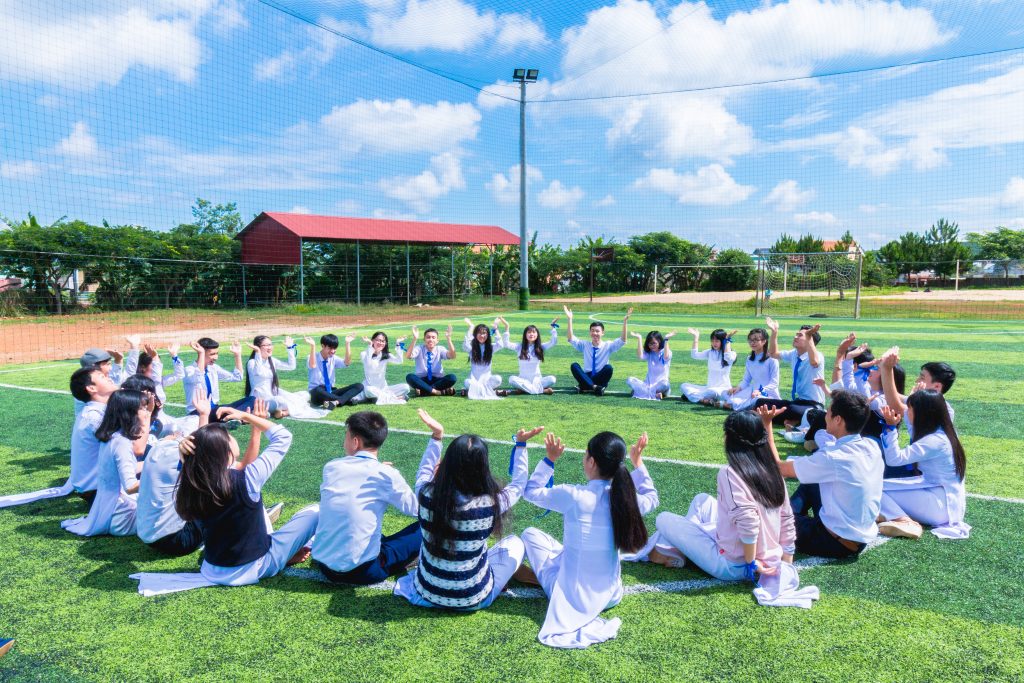Education is the Key to a Sustainable Future
Image Source: Pexels
By: Charlie Fletcher
In the modern era, the term “education” has come to encompass all sorts of systemic social promises and challenges. Still, at its core, education is the most straightforward, most organically human practice around. It is intentional knowledge growth, and it is our greatest tool to secure a sustainable future for our planet. Let’s unpack the various forms of education we can harness to ensure a sustainable future for our planet.
Academic and Trade Education
The first form of education is the most traditional: school. Around the developed world, communities have built dynamic systems for educating their children and the next generation of workers. These schools are the natural starting point for helping kids become tomorrow’s sustainability leaders.
Introducing children to the problem-solving and analytical skills of STEM (Science, Technology, Engineering, Math) fields is a vital first step to fostering a society equipped to deal with the complex issues affecting our planet. A child introduced to these fields in elementary school has the earliest chance to discover a passion for STEM and devote their future career to creative and impactful applications.
STEM studies help prepare kids for the jobs of tomorrow, the ones we can’t even imagine today. A generation ago, teachers would never have thought to prepare their students for today’s careers. Still, by teaching them the STEM fundamentals of problem-solving and valuing a creative mindset, students will one day be able to identify solutions that address the problems our planet faces.
Take, for example, a third-grade girl who loved learning multiplication tables and playing with the robot-building kit. Eventually, she graduated high school and decided to study mechanical engineering in college. Yet, back in the 3rd grade, her teacher never would have thought to encourage her to study electric cars or nanotechnology, the two up-and-coming industries for mechanical engineers. However, he helped her master essential analytical thinking, and she was primed for a thriving career in whatever field she chose.
Business and Education
Once an individual is educated on sustainability, the next step is to share that knowledge and use it to hold businesses and industries accountable. Individual environmentalism is an essential part of a sustainable future, and we will discuss it more in the next section. Still, climate change will not be solved with household recycling and consumer awareness alone.
For the change we need, businesses across the globe will have to dramatically change the way they use natural resources and produce harmful emissions. When individuals are educated about the causes and effects of climate change, they can help influence business from the inside by incentivizing sustainability.
Another essential element of holding businesses accountable for sustainable action is calling them out when they manipulate their image to seem more environmentally friendly than they are. This dubious practice is called greenwashing, and it has a long history starting in the 1960s with the nuclear power division of Westinghouse, a US electrical company.
Westinghouse published photos of their power plants in beautiful natural places, proclaiming nuclear power to be a safe and clean energy source. They conveniently ignored the dangerous nuclear meltdowns that had recently occurred and sidestepped the negative environmental impact of nuclear waste.
A person without knowledge about the environmentally distressing aspects of nuclear power probably wouldn’t think twice about the ad. Still, someone with the education to understand the company’s manipulative tactics would be empowered to raise the issue and demand change through legal and political action.
Community Education & Organizations
That brings us to another highly impactful manifestation of education: when individuals organize. Non-governmental organizations, sometimes referred to as intermediaries, have been shown to advance sustainability transitions in the Netherlands, Finland, and the UK. Between 1896-1970, the Dutch Tourist Association acted as an intermediary between the Dutch population and their systemic reliance on automobiles; the result is the car-light Netherlands we know today.
Finland and the UK have similar success stories with intermediaries in heat pumps and low-energy homes. In short, when people organize around practical and sustainable models, progress is made.
Drilling down from the country-scale to a community-scale, local education efforts are an invaluable asset to a sustainable future. It can be challenging to convince people to change their behaviours if they don’t see the problem. It would be a hard sell, for example, to get someone on Vancouver Island to ration water simply because they don’t experience water scarcity themselves.
The power of local educational initiatives is that they can be catered to the problems impacting a specific region. A community organization in Alberta, a territory experiencing significant drought, could partner with a local nursery to host an informational workshop on sustainable
landscaping. While a group in the Northwest Territories, which boasts the highest electrical costs in Canada, could talk to homeowners about the benefits of net-zero homes. If one were to switch these topics between locations, residents would find it exciting but not nearly as actionable. The key to community sustainability education is to make it relevant and valuable to the local community.
To build a sustainable future for our planet, we will need to engage in a strict routine of ongoing education at every level of society. It’s not enough to teach our children about sustainability and hope for the best. We have to advocate within our systems and grow alongside our children. We will leave them with the best possible skills and resources to thrive on planet earth.
Charlie Fletcher is a freelance writer with a background in sociology, and a specific interest in sustainability practices, and how pollution affects certain groups of people.




